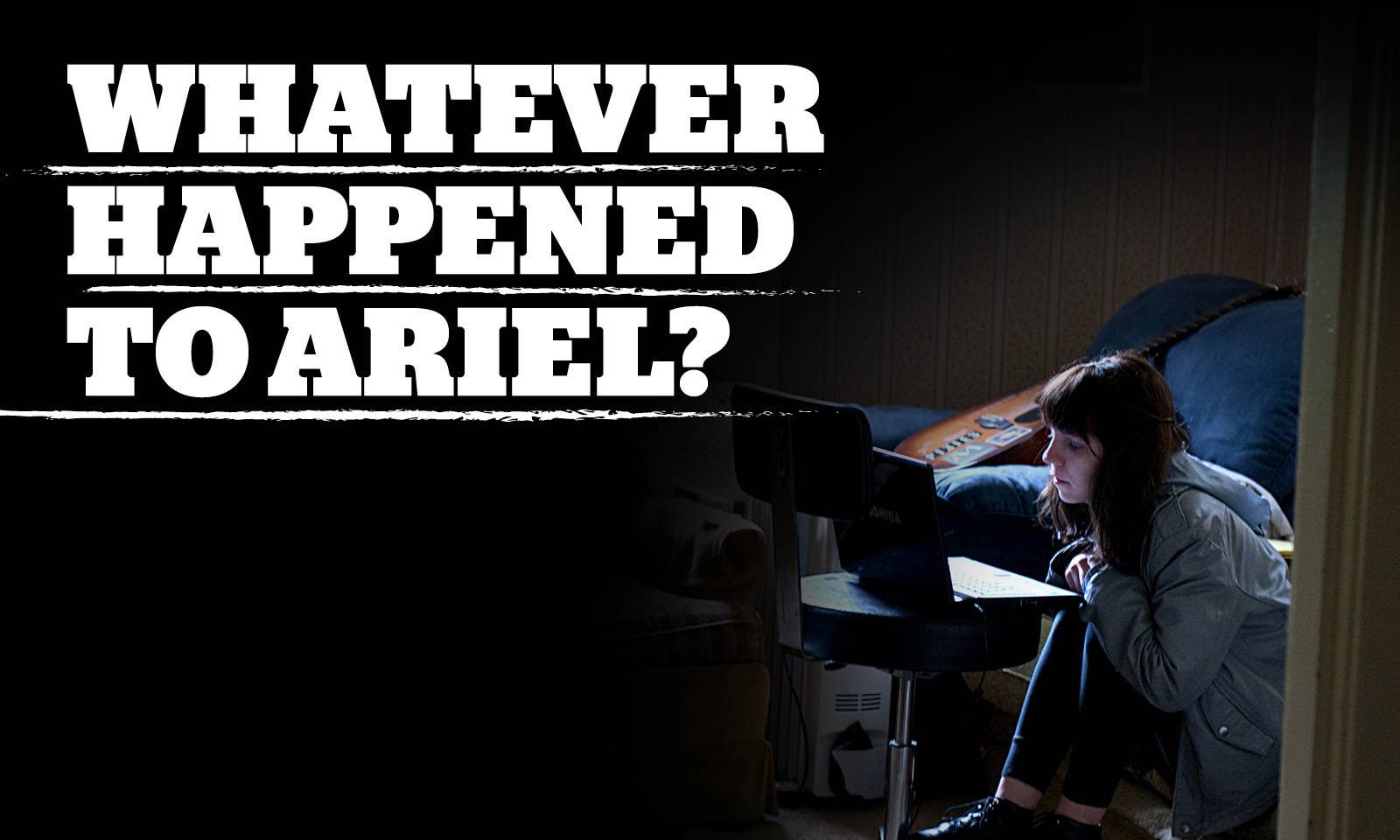
CHATTANOOGA, Tennessee — On July 17, the city of Chattanooga woke to the sober reality that the events of the past 24 hours had not been some sort of nightmare — a young man named Mohammad Abdulazeez had attacked a military recruiting center and military base, killing four Marines and bringing fears of Islamist terrorism to the place known as one of the most “Most Bible-Minded” cities in America.
Halfway around the world, however, one woman saw the news on Twitter and posted her joy: “Gifted this morning not only with Eid but w/ the news of a brother puttin fear n the heart of kufar [non-believers] n the city of my birth. Alhamdullilah [thanks be to God].”

BuzzFeed News has confirmed that this woman, who calls herself “Emarah bint Aljon” or “Umm Aminah,” is Ariel Bradley, a 29-year-old American from the Chattanooga suburb of Hixson — where shooter Abdulazeez also lived — who has been living in ISIS-controlled territory in Syria for more than a year, with her Iraqi-born husband and their two children. The couple’s first child, a daughter, was born in Chattanooga in 2012. Their son was born in Syria late last year.
"May Allah accept [the Chattanooga shooter] as shaheed [a martyr]," she wrote from her recently restored Twitter account @aminah_umm. “in sha Allah [if God wills] this will make the camps of Emaan [believers] and Kuffr [non believers] known within Chattanooga.”
Ariel's mother, Dianne Bradley, said she did not know the daughter she raised and homeschooled as an evangelical Christian had willingly joined ISIS until BuzzFeed News approached her on the steps of the family home in Hixson. With an anxious scan of the front yard, lip trembling, Dianne Bradley said her daughter told her family last year that she had traveled to the Middle East with her husband, Yasin Mohamad, on "a mission trip" to help her husband's family. She said she was concerned when she received a photo of her two grandchildren — 2-year-old Aminah, dressed all in black, holding her infant brother, Yaqub — in March and worried that her daughter was involved with extremism, but she told BuzzFeed News the family had not approached the U.S. government about their concerns about the missing 29-year-old and her family.
When first contacted by BuzzFeed News in late May, Ariel responded to emails and various messages posted to her social media platforms to confirm her identity and location. But she declined subsequent requests to be formally interviewed. Ariel’s relatives, who have been in contact with her as recently as June, also declined to sit down for a formal interview.
BuzzFeed News spent weeks in Chattanooga talking to nearly 20 of Ariel’s friends, ex-boyfriends, and former employers, many of whom spoke on the condition they only be identified by their relationship to Ariel because they fear reprisals from ISIS and negative attention from the Chattanooga community. Despite personal concerns and their confusion over Ariel’s situation, most of the friends who spoke with BuzzFeed News emphasized their affection for Ariel. Nearly all — including the Muslim man she fell for in early 2011 before her conversion but who didn’t return her affection — were puzzled by the same question: How did the bubbly, caring, self-described feminist, who lived and partied with them, who got tattoos and dropped acid, become someone who would embrace a radical ideology that calls for the subjugation of women and the destruction of her home country?

Ariel Dawn Bradley was born Sept. 1, 1985, to Aljon and Dianne Bradley, the third of their five children. Aljon, whom everyone called “Dale,” worked at the Coca-Cola Bottling Company; Dianne stayed at home with their kids.
Ariel grew up in a house on a sleepy cul-de-sac in Hixson, roughly 20 minutes outside downtown Chattanooga. The Bradley home, a small raised ranch house with peeling paint overlooking an overgrown yard and algae-filled plastic pond, sits in the shadow of the New Vision Worship Center, one of the area’s omnipresent evangelical assemblies.
Ariel would later tell her friends that she grew up in poverty. “I remember her saying to me, ‘I grew up so poor that I forgot what milk tastes like,’” said one of Ariel’s friends who often volunteered with her in Chattanooga’s projects. “You think of milk as this necessity that everyone has in their fridge, but they were so poor they didn't have milk.”
Dianne Bradley insisted on homeschooling her children, assembling a curriculum with an emphasis on the religious beliefs dictated by the Pentecostal Church of God in Cleveland, Tennessee. According to Robert Parker, who shared a house with Ariel in 2009, Ariel did not learn to read until she was a preteen. She told people she believed the objective of this was to "keep her away from materials that would make her question Christianity," Parker added.
Ariel would tell friends that her education had been lacking. “She said that her mom got her a religious education, but that she was always trying to pastiche the whole thing together, just here and there,” said the man everyone who spoke to BuzzFeed News described as Ariel’s oldest and closest friend. “There were gaps in pronunciation, gaps in her knowledge,” he said. “Gaps in her experience and in her mind that should've been filled.”
Ariel’s fundamentalist upbringing and education led to a strained relationship with her mother and her mother’s evangelism as she entered her teenage years. “She was embarrassed of her mother,” this friend said.
Growing up, he said, Ariel had a strong relationship with her father and appreciated his quiet spirituality. “If she found any redeeming aspect of Christianity, she found it in her father,” her close friend said. “I think Ariel got that goodness from him. That gentleness from him. And I think Ariel got that ferocious vitriolic religiosity from her mother, and the two just kind of married in this one person, and then there she was.”
As Ariel and her siblings grew up, friends say, they began to rebel against their parents. Ariel ran away from the family home when she was 15 or 16, friends say. For the next decade, she would bounce from relationship to relationship, home to home, and religion to religion, searching for the stability that had been missing during her childhood, which had been defined by a loving father who spent more time at the factory than at home and a mother prone to religious outbursts. As her close friend put it, “Her life was a solar system without a star, without a sun.”
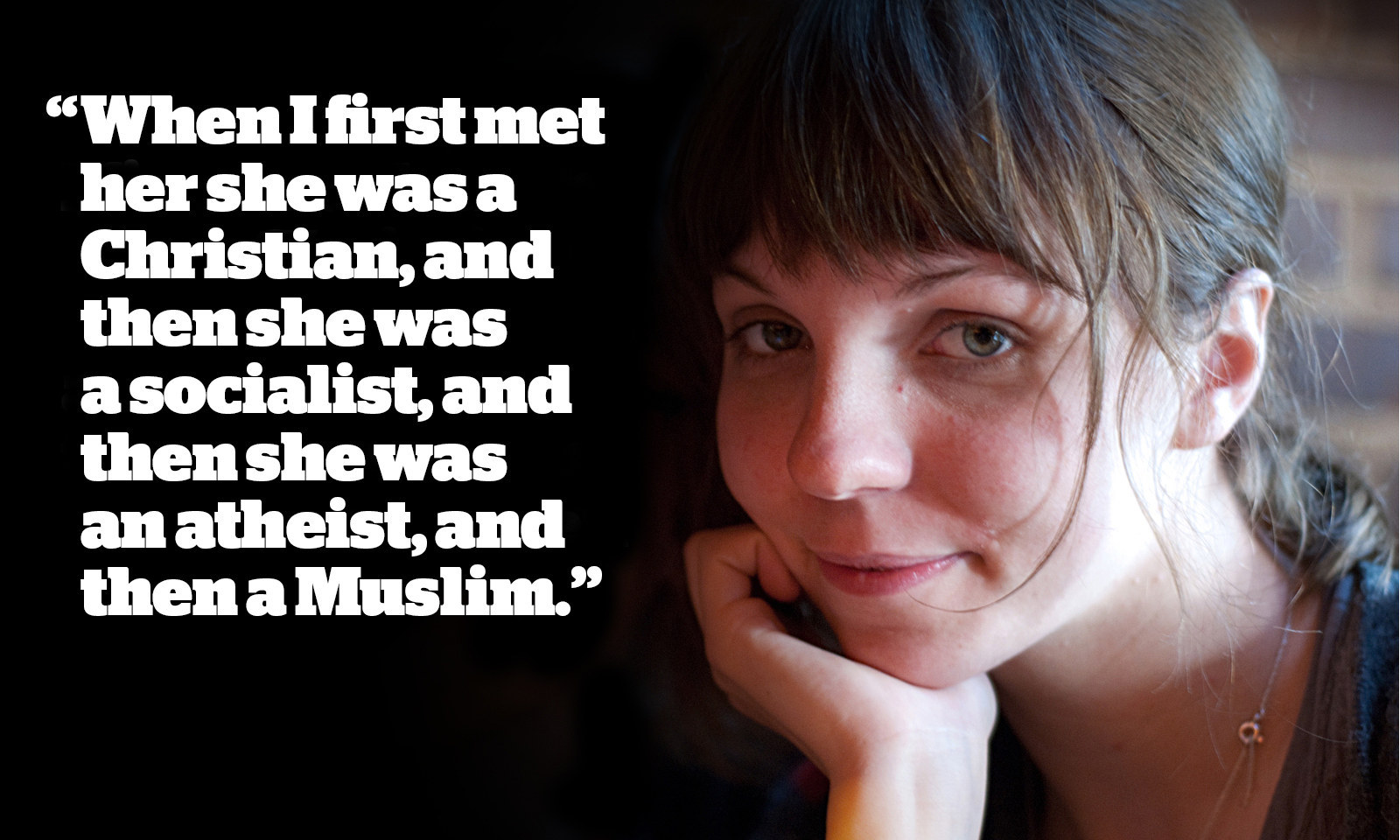
Friends said Ariel defined herself through her relationships. “Not to throw her under the bus or anything, but she was definitely always looking for love, always looking for that sense of belonging,” said a friend who lived with Ariel in 2010 and part of 2011.
“The thing about Ariel that was just so weird was that she had such a clearly segmented life,” said a female friend who dated one of Ariel’s housemates in 2009. “It was like, when I first met her she was a Christian, and then she was a socialist, and then she was an atheist, and then a Muslim. As far as I could tell it was always in relation to whatever guy she was interested in, so if she meets a guy that's an atheist then she's an atheist, falls into that for a year. Then the guy leaves and she meets somebody new, and it starts all over again.”
“It seemed like whatever guy she was with, she would just crawl into his skin and kind of become him,” she added.
After she ran away from home, her close friend said, Ariel attached herself to a succession of men. “Older. Dominant. Providing her a living space,” he said of Ariel’s boyfriends in her teenage years. “It was survival sex.” She would then rotate through more serious relationships with men. In 2009, she got pregnant and had an abortion without telling the baby’s father, despite the fact that she deeply wanted children and a family, because he had defined the relationship as a casual one, her roommates at the time said.
When she wasn’t adapting herself to her boyfriends, friends say, she had a bubbly, giggly personality. “She was kind of shy,” said a female friend who lived with Ariel in 2010. “But then once you got to know her, she was so, like, intensely personal and wanted to share with you, like, her heart. What was she was thinking and feeling.”
Friends described Ariel as short and slight, with long golden hair she would sometimes dye for a few months and large blue eyes that dominated her face. She has multiple tattoos, most notably two nautical stars, one on each shoulder.
Like many other young adults in Chattanooga, friends and housemates say, she drank heavily, smoked cigarettes and weed, and experimented with drugs, specifically while at the Bonnaroo Music Festival in 2006. “She did so much acid that she collapsed during the Radiohead concert,” one of her closest friends said, adding that Ariel came to when the band began playing her favorite song, “Pyramid Song.”
More than anything else, however, friends described Ariel as being a deeply caring person. She was “really good at quietly sitting and listening with people,” said the female friend who lived with Ariel in 2010. “Listening to people and making them feel like they were being listened to.” Travis Upton, a friend who met Ariel as part of Chattanooga’s “hipster scene” and would debate theological issues with her, remembers that she “spent an hour getting a mouse out of a glue trap once. She took an hour and this mouse just sat completely still because he knew she was helping.”

Over the years, Ariel worked to make up for her lack of education, studying for her GED but never obtaining it, friends say, in part because she couldn’t afford the prep classes at the local community college.
One friend, who was a student at University of Tennessee, Chattanooga, when he first met Ariel, said that he would sneak her into music classes with him. “Those big classes of a thousand freshman and stuff so nobody would know the difference. She took the tests, actually, and submitted them.” He said that if Ariel had been enrolled, she would have passed the course. “She was a better student than me. She helped me out.”
Ariel bounced from low-paying job to low-paying job, due to her lack of GED and her lack of reliable transportation. Ariel, her friend said, had worked at the Tennessee Aquarium, a plant nursery, coffee shops, flower shops, and countless other part-time jobs.
When she wasn’t working, she was active in many social justice groups in Chattanooga, protesting and raising awareness of issues facing the city’s working poor and often traveling out of state to march in rallies for teachers’ rights or protests against America’s overseas military actions. In the biography of the Twitter account @LadyAppleSeed, which she created in May 2009, Ariel describes herself as an “activist,” and friends say she considered that a huge part of her identity; they also said she called herself a feminist.
Ariel never had a place of her own, friends said. She either lived with boyfriends or with roommates — and she was always late on the rent and slept on a mattress on the floor because she couldn’t afford a bed.
“I think that she was angry at the cards that were dealt to her,” said the friend described as her closest. “It was all the more frustrating for her, and all the more sad to watch, because here you got to see this beautiful young woman, this friend of mine, that has and had so much potential, and you just saw it trying to poke up and find its way and then get slammed down by a minimum wage job, or by a shit boyfriend, or by an abusive situation, or by her crazy mother and her poor upbringing.”

In 2010, Ariel once again found herself in need of a job and a place to live. She found both thanks to a new friend, an artist who invited her to move into the house she shared with her brother. The artist and her brother introduced Ariel to their employer, who owned University Pizza and Deli and who hired her on the spot. The owner, a Palestinian man who emigrated from Jerusalem in his teens, featured Middle Eastern food as well as American staples on his restaurant’s menu, and the spot became a popular gathering place for international students who attended the nearby University of Tennessee, Chattanooga.
While working at the restaurant, Ariel met the man who would spark her interest in Islam, a young Syrian man studying engineering at UTC.
“He was a couple years younger than she was, but she fell for him,” said Ariel’s artist roommate and friend. Ariel told her friends she had a “big crush” on the engineering student, but friends said the pair never dated, something confirmed by the man himself. "What happened between us, it was not even a relationship," he told BuzzFeed News when reached by phone. "It was just, like, talking."
One of the things they talked about, he said, was Islam. As someone striving to live as “a good Muslim,” the engineering student was different from the people in Ariel’s circle of friends. “Maybe she was trying to get closer to me, somehow,” he said. “Maybe she thought that, OK, if I convert to Islam, I will be closer to him.” But he said that he also believed Ariel was trying to find something “to fill a gap” in her spiritual life. “Maybe she was lost,” he said.
“[When] I felt that she started falling for me, I told her, 'I just can't. I can't go any further. We're just friends,' and we talked a little bit and that's it.” He said that he stopped talking to her and avoided seeing her outside of the restaurant, where he would hang out with the other international students.
Ariel told her friends that her crush had told her their friendship couldn’t be taken to the next level because she wasn’t a Muslim. The man denies that he gave her this explanation.
Ariel’s behavior and personality began to change immediately after she was rebuffed by the engineering student she had so admired, her friends said. She stopped drinking alcohol and began spending more time alone in her room with the door shut. “She just gradually removed herself from hanging out and talking,” said her housemate at the time.
Ariel was spending her free time researching the internet for information on Islam, inspired, friends say, by her crush. “[What] the guy did was open the door in the sense of, ‘I’m interested in you, so I’m going to learn about your religion,’” said Ariel’s friend Travis Upton.
Ariel began dressing more modestly than she had before, covering her arms with cardigans and long sleeves and adding scarves to her outfits, laughing off her friends’ inquiries as to whether she had converted to Islam, even though she would sometimes wear her scarves over her head.
By the spring of 2011, she appeared to have made up her mind to convert. On March 18, 2011, she posted a question to the Islam section of Yahoo Answers under the name “LadyAppleSeed.”
“Is it okay to wear Hijab before converting?” Ariel asked, explaining that although she had not yet “taken her Shahadah” (made the declaration of faith to formally become a Muslim) she wanted “to already be acting out what I believe until [then].” She added, “I have been doing research on Islam for the past 4-5 months and I wanted to make sure I knew all I could about Islam before making a choice as this.” Although she didn’t specify what her research entailed, others say this included attending Friday prayer services at the local mosque and making friends with other Muslim women on Tumblr.
“She said she wasn’t happy with [her life],” said a Muslim woman who became close friends with Ariel after her conversion. “When she started to read about the prophet's wives and stuff in Islam, she felt that this was the right way to live.” Ariel omitted details of her past partying ways when she talked with her new friends from the mosque, telling them that she was seeking a conservative life closer to God.
One Friday in the spring of 2011, Ariel invited her boss and some friends from the restaurant to the mosque to witness her conversion. One of her fellow employees said, “They made an announcement, like, ‘Hey, this girl is converting today.’ So [Ariel] went through her motions and did her prayers. And after that everyone — all the women — gave her hugs.”
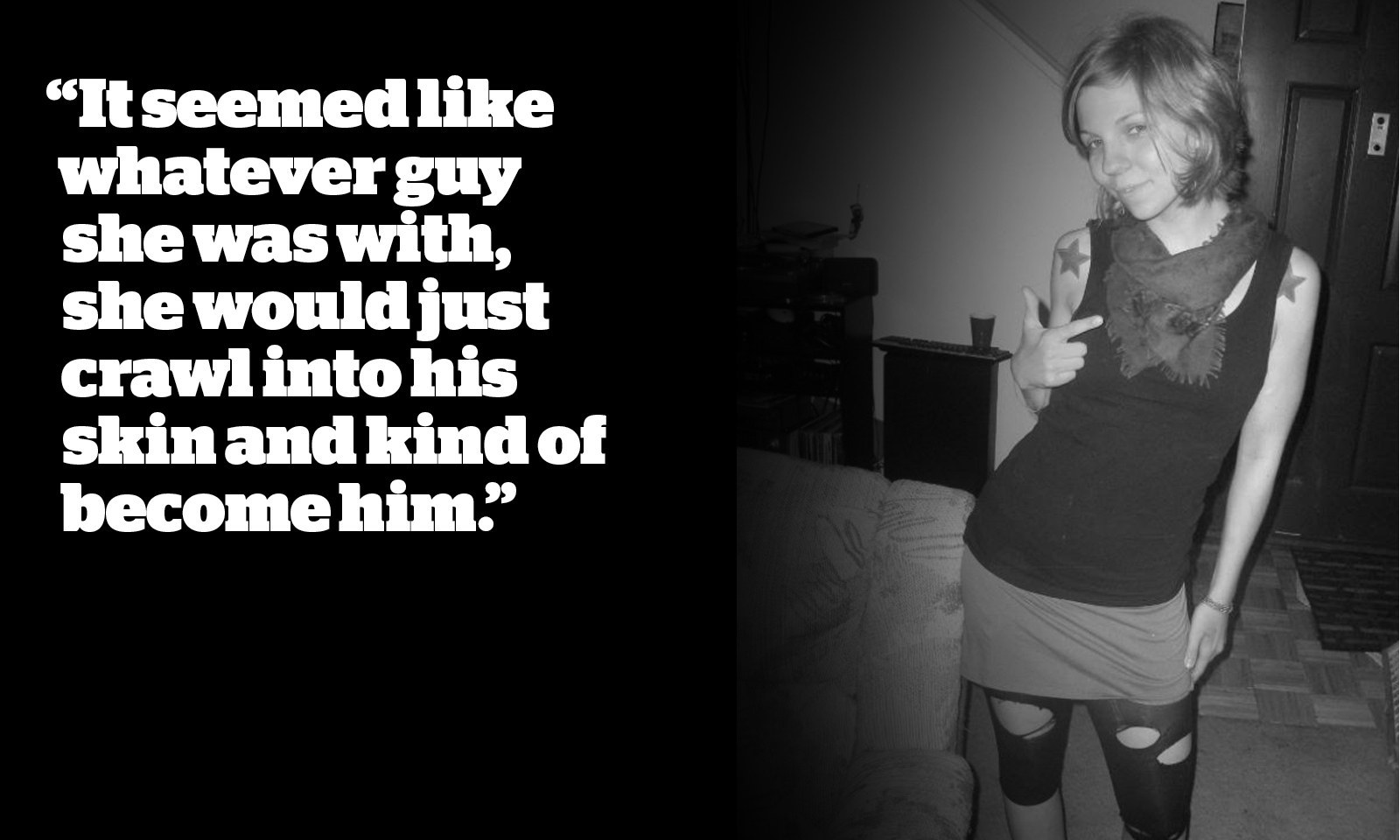
After her conversion, the intensity to which Ariel approached Islam surprised her new friends who had been born and raised in the faith. “She was a very strict Muslim,” Ariel’s closest female Muslim friend said, remembering that Ariel would attend Friday prayers every week, even though it's not expected of women as it is of men.
Ariel was suspicious when her Muslim friends would try to talk to her about how their religion had changed with the times over the years. “She had to follow exactly what the Qur'an said, and the hadiths, the prophets and stuff, what they said,” her Muslim friend said. According to friends, Ariel wanted to follow the religion the way that the prophet’s wives had worshipped thousands of years ago.
Ariel actively began looking for a husband as soon as she converted. “She wanted somebody that was religious,” her friend said. “She wanted somebody that was actually a practicing Muslim.”
“She took a lot of initiative for herself to find people online,” said her housemate’s brother, who also lived with them in 2010 and part of 2011. “She was on Facebook a lot,” he said, and he would see Ariel exchanging posts with what he called “Arabic guys.” On one occasion, he said, an older man from Seattle flew to Chattanooga to meet her for an arranged visit. “I remember that dude came to our house, and she didn't really like him,” he said. “It was very down to business. In like, five hours, he's basically, like, if you want to be with me, let's just make this happen.”
Ariel declined the offer and began setting up profiles on Muslim matrimony websites, a friend from the mosque said.
Around this time, Ariel’s new lifestyle caused tension with her old friends. In a short span of time, friends said, everything about Ariel changed. She became more introverted; her formerly bubbly personality disappeared. “As soon as she converted, she took herself more and more away,” her male housemate at the time said. “Just like, who she was, she just kinda like faded, like a snail in its shell.”
Like the others, Ariel’s female housemate was hurt by the way her friend was changing before her eyes.“I wanted to say, you are turning into a totally different person. You're not that person who loves everybody now. You're looking at me differently when I wear a short skirt or something.”
Meanwhile, Ariel was talking to her Muslim friends about how she wanted to move out of her house and stop being friends with her housemates, because they weren’t a good influence on her. “Their lifestyle, it’s not Ariel’s lifestyle, period,” said the owner of the restaurant where Ariel and her two housemates worked. “They’re good people, but their lifestyle is not for a Muslim woman.” Her employer supported Ariel’s conversion and would sometimes drive Ariel to the mosque on Fridays for prayers and then drive them back to the restaurant. He also told BuzzFeed News that at Ariel’s urging, he spoke to her future husband on the phone once after she got engaged.

Ariel's parents had not spoken to her since she converted, so Ariel moved into the house her older — and happily married — sister Dara McIntyre shared with her young daughter and husband. Although Dara was still unsure about Ariel's conversion to Islam and how quickly it had happened, she provided her sister with a home as she split her time between work at the restaurant and searching for a husband online.
In late August 2011, Ariel was notified of a potential match on the “Muslim Matrimony Site” Half Our Deen. Instead of answering questions about physical appearance or finances, users fill out quizzes about their personalities and religious practices, such as if you read the Qur’an daily and wake up for Fajr, or dawn prayer.
Ariel, 26, had been matched with 22-year-old Yasin Mohamad, who was living in Borås, Sweden. Mohamad told Ariel that he was a refugee from Iraq, one of nine children born to his Palestinian father and Lebanese mother, who were now divorced. According to Ariel’s former housemate, who still worked with her at the restaurant, Mohamad told Ariel he was studying architecture when he wasn’t working.
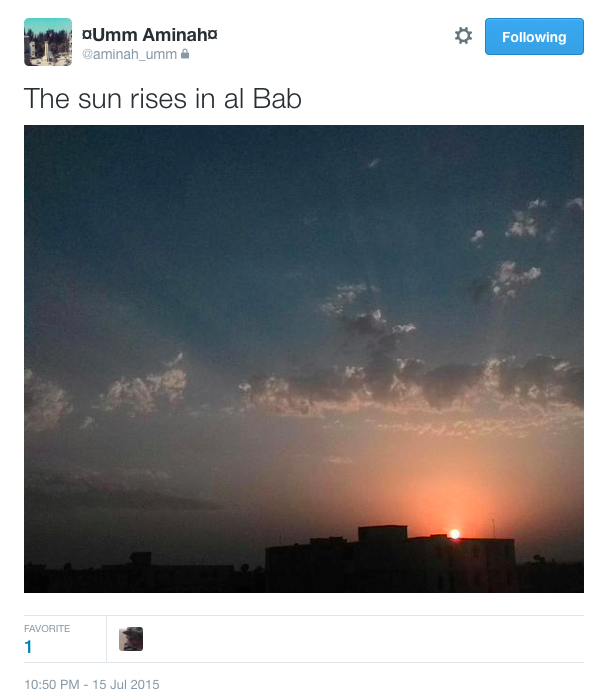
Ariel and Yasin began talking with each other over WhatsApp, said Ariel’s close Muslim friend. After two or three months of chatting and Skyping, Yasin proposed and Ariel immediately accepted. In an interview for Half Our Deen's “Success Stories” page, Mohamad said he and Ariel had been matched with a 70% compatibility rating.
Ariel’s friends — particularly her Muslim friends — said they were worried about the match. “He didn't have the Sweden citizenship or residency or anything. I don't think he did, from what she told me, so I had a feeling he was just trying to get with her for the American citizenship,” her close female Muslim friend said.
“Everybody warned her and just said, 'Don't do it, don't do it, you don't know him, you don't know anything about his background, you don't know his family.' It could be a trick or something,” she said. They were particularly worried because Mohamad had no social media presence. “She only ever had one picture of him,” the friend said. “[Ariel had to] beg him to send a picture, because she was like, ‘Everybody wants to see what you look like.’”
But Ariel was eager to meet and marry her husband, and she cut off those friends who objected to her choice, one of her friends said.
As soon as they were engaged, Yasin began to talk to Ariel about what he expected from her as a wife. “He wanted her to change the way she dressed,” the friend said. “He did not want her listening to music” — a particularly sad change for friends to observe, because Ariel played guitar and was a talented singer. “Jesus Christ, her voice,” said one friend. “When she sang, there wasn’t anything else you’d want to listen to but her.”
Yasin also didn’t want Ariel to talk to any men who were not immediate family members and, friends say, Ariel abided by his wishes. “If we went to a restaurant and the waiter was a guy, she would not talk to him. She would make me order her food for her,” her close Muslim friend said. “This was even before she got married. It was that bad.”
After she got engaged, Ariel moved in with her parents in an attempt to begin rebuilding her relationship with them. “I know it was hard for her mother — and her father, too — when she told them that she was going to marry a guy overseas, and she was going to travel to marry him,” said her Muslim friend.
Ariel eagerly prepared for the trip, asking questions on YouTube about whether passport photos could be taken in hijab and posting excited updates to her Tumblr account. “Not married yet!” she posted Dec. 13 in reply to a question from a follower about whether congratulations were due. “I leave in 8 days to go meet with him and his family AND insha Allah I will get married then :) I will post a photo of us after we marry insha Allah.”
On Dec. 21, Ariel took her first overseas trip, flying to Sweden to meet her future husband. She and Mohamad were married days later in a small private religious ceremony at the couple’s apartment, according to her Muslim friend.
Ariel’s tattoos may have come as a surprise to her new husband on their wedding night, since she told her friends before she left that she was waiting until she met him in person to tell him about her colorful life before her conversion. When she returned to America, she told her Muslim friend that her husband told her that “he's OK with what was before, because that was the past and it's gone and she's a different person now.”

After a few weeks in Sweden with her new husband, Ariel flew back to Chattanooga so her Swedish residency application could be processed. To her friends’ surprise, Ariel returned wearing the abaya, the robe-like overdress worn by more conservative Muslim women, explaining, “that's what [my] husband wants.” She also returned eating meat, explaining that her husband thought her vegetarian diet was making her unhealthy.
Ariel briefly resumed her job at the restaurant upon her return from Sweden, but Mohamad soon urged her to quit and cut ties with all her Chattanooga friends, including her Muslim friends. “He made her go through her Facebook and delete every guy she knew on there and make sure that there were only girls,” Ariel’s close Muslim friend said.
Mohamad also told Ariel to remove all images of herself from the website — even those that had been posted by other people. If photos weren’t removed promptly, Ariel would send frantic follow-up Facebook messages and emails asking friends to remove the pictures, explaining that it was an expression of her faith, and she didn’t want men to see her.
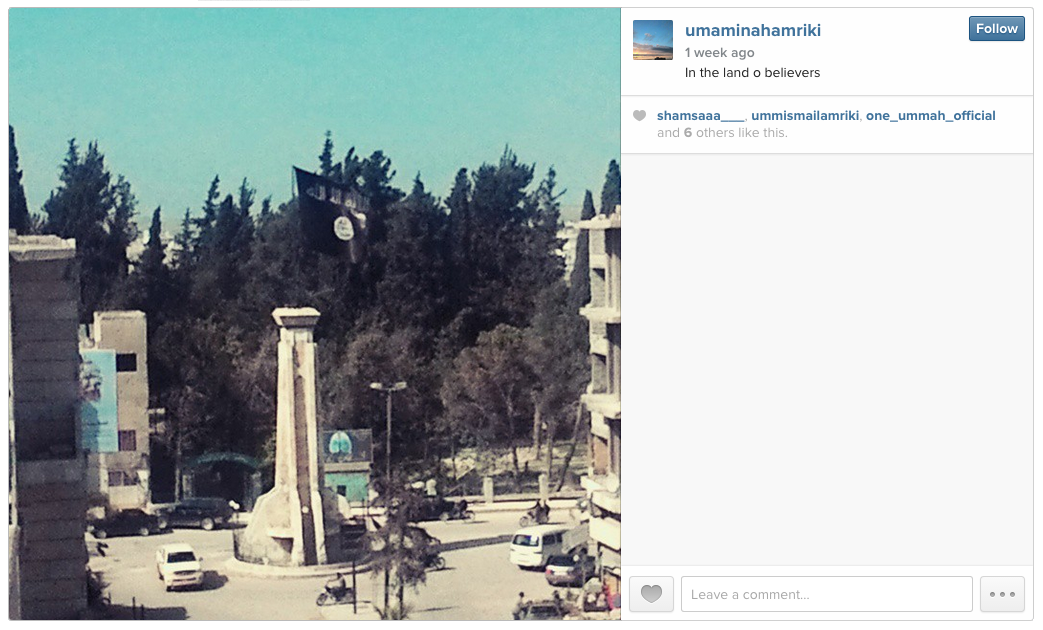
After a few weeks in Chattanooga, on Jan. 29, 2012, Ariel said on Tumblr that she was looking forward to “landing in the arms of my husband once again.” By all accounts, it was a warm reunion. Throughout February and March, she happily posted about her new domestic life in Sweden, including an anecdote about asking her husband to buy dill from the store, not knowing there was a dill plant in their apartment.
It was during this time in Borås that Ariel became pregnant. “I don't think she wanted children as soon as she got married,” her close Muslim friend said. “I think that she wanted to wait a little bit. But he was rushing it; he wanted children right away.”
After much discussion, approximately three months after leaving the United States for a second time, Ariel — pregnant and alone — returned to Chattanooga.
Ariel didn’t tell her friends that she was returning to the United States for prenatal care and the eventual birth of her child — everyone who spoke to BuzzFeed News who had seen her during this time indicated that they were surprised to see her pregnant. She stayed with her parents and rarely left the house, except for her doctor’s appointments and Friday prayers at the mosque. She avoided her friends, putting off invitations to hang out with vague messages like, “Insh’allah (if God wills) we will hang out.”
Ariel’s friends were suspicious about the fact that Yasin was unable to witness the birth of his first child. “She said that he couldn't get a visa, but there was something — it was a fishy story; it didn't make sense,” said the same friend, who told BuzzFeed News that she tried to help Ariel with her husband’s paperwork and visa applications. Ariel told her friends and family that Yasin had applied, but wasn’t allowed to come into the country.
On Dec. 8, 2012, at 3:03 a.m., Ariel Bradley gave birth to her first child, a baby girl named Aminah Mohamad. “Dale and I — we are blessed to receive a second grandbaby!” Ariel’s mother Dianne Bradley posted on Google+.
After giving birth to Aminah, Ariel took a few months to recover in Chattanooga before bringing her newborn daughter home to Sweden and her husband.
But her move back — and what happened next — surprised her friends. “The next thing I know is that I see on her Facebook that she’s back in Sweden and the day after that she’s going to delete her Facebook. And that was it,” her Muslim friend said. “When she deleted her Facebook and just kind of everything else with it, it was just like she didn’t exist anymore.”
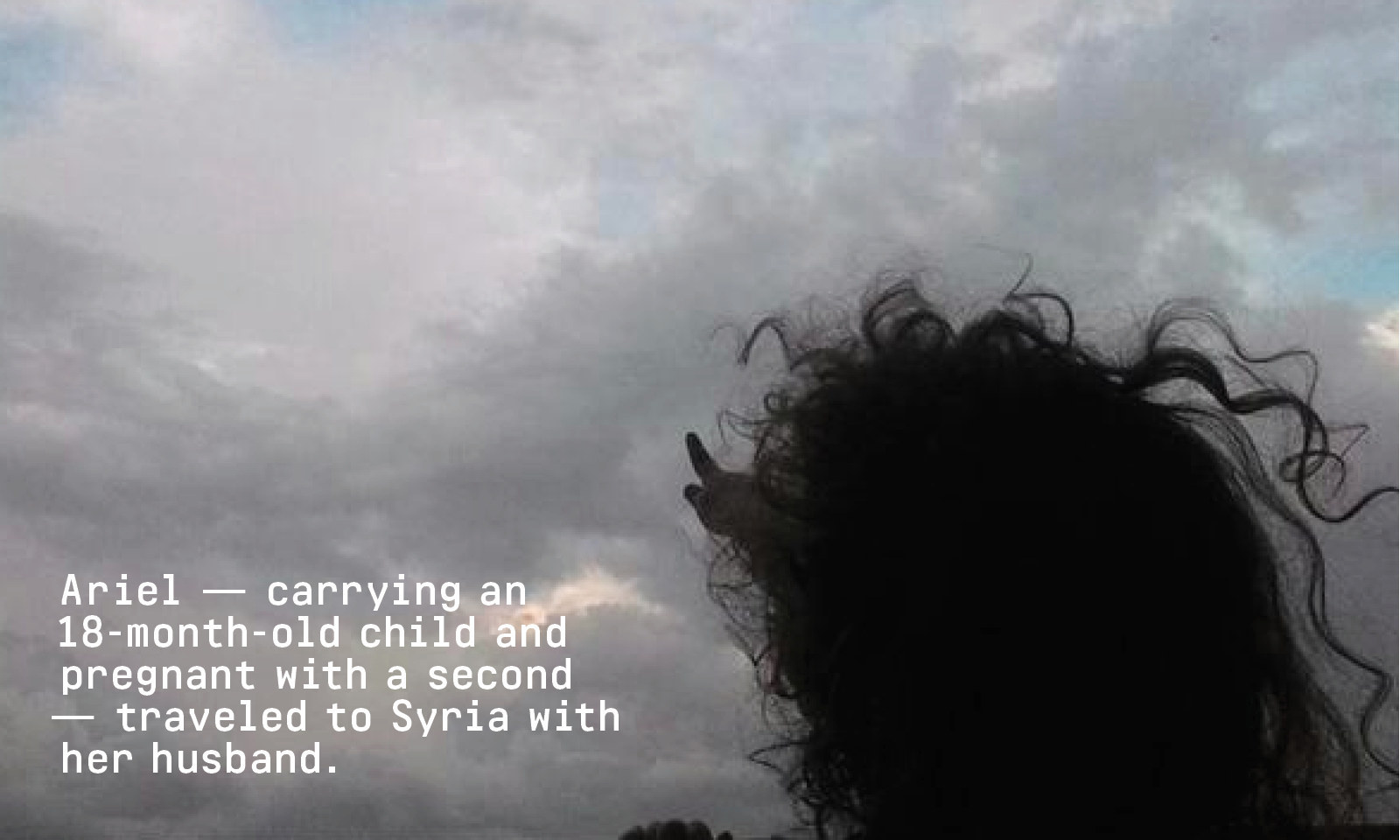
Because Ariel later purged the majority of her social media accounts, it’s unclear what precisely radicalized her and her husband, or when it happened. Some of Ariel’s comments from a now-deleted YouTube account indicate that she and her husband may have begun planning their trip to Syria in late December 2013, as she said she was looking for baby wraps that would allow her to travel long distances comfortably with a small child.
Shortly after that post Ariel — carrying an 18-month-old child and pregnant with a second — traveled to Syria with her husband, who she said had joined the ranks of ISIS fighters. On April 21 of this year, she posted that the family had already been there one year: “Alhumdulillah (Thanks be to God) n Sham (Syria) 4 over yr now, 8 months of it here in al Bab.. I don’t like being n 1place too long though. don’t wanna be stuck 2 dunya (the material world)”
Ariel remained in contact with her family in Chattanooga after moving to ISIS-controlled territory. In a now-deleted Facebook post from October 2014, Ariel’s sister Dara McIntyre commented about how her “niece or nephew” would be born soon, adding that she’d have to check with her mother about her sister’s exact due date.
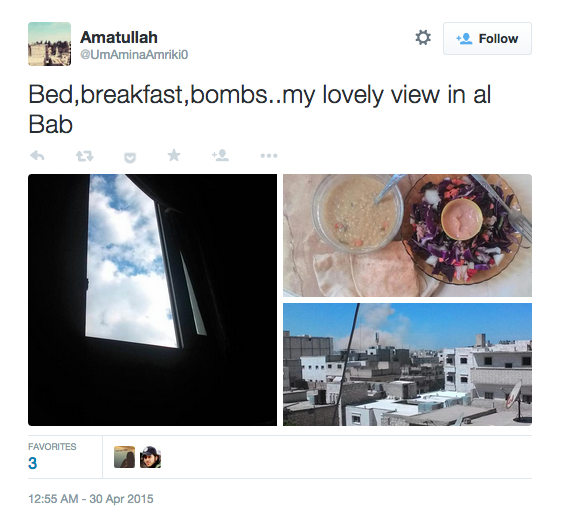
Throughout her time in Syria, Ariel remained active on social media. Using variations of “Umm Aminah” or “Emarah bint Aljon” (a nod to her beloved father) she created different Twitter accounts to tweet about her life in Syria. “Dua’a [prayers] plz.. Being a muslimah,mommy,non Arabic speaker n Sham [Syria] & wife of a mujahid [the word ISIS fighters use to describe themselves] brings heavy trails [sic]. in sha Allah I pass this test,” she posted on Feb. 11, 2015.
Ariel’s tweets indicate that she befriended the wives of other fighters in her city who were also on Twitter. “Sweet tea, dates, fluffy bread, sunshine, my 2 kids on balcon [sic].. and best of all.. Qur’an time.come up and join,” she tweeted to a friend on May 7, 2015.
Some of her tweets could have been written by any other mother with two small children. “Turn around & my daughter is covered in white.. never leave baby powder at eye level of a 2 year old,” she posted in February. But others highlight the dangers of the place where she is raising her two small children, as she uploads images of bombs dropping and complains about their noise waking her in the mornings. When one ISIS supporter replied to Ariel’s tweet about bombs with prayers for her safety, she replied, “Not death I should fear but the state I meet it in.May Allah guide us & give us shaheed [martyrdom]. Ameen.”

It has been more than two years since Ariel’s friends have heard from her. Several said they believe she’s been brainwashed and hope that she’ll be able to “wake up” one day and come home as the person they knew.
“It’s hard to bear,” her closest friend said, describing the difficulty of grieving for Ariel while she’s still alive. “You have a loved one who joins ISIS. What does that mean? How do you reconcile the fact that you miss this human being, that you love this person?”
And while the specific reason why Ariel’s made the decisions she has is elusive, her closest friend believes that at its core is her desire to shed a feeling of “spiritual desperation.”
“Be it religion, be it a man, be it a marriage, be it a child, be it ISIS, Ariel was always looking for something to define herself, an identity to cling to.”

